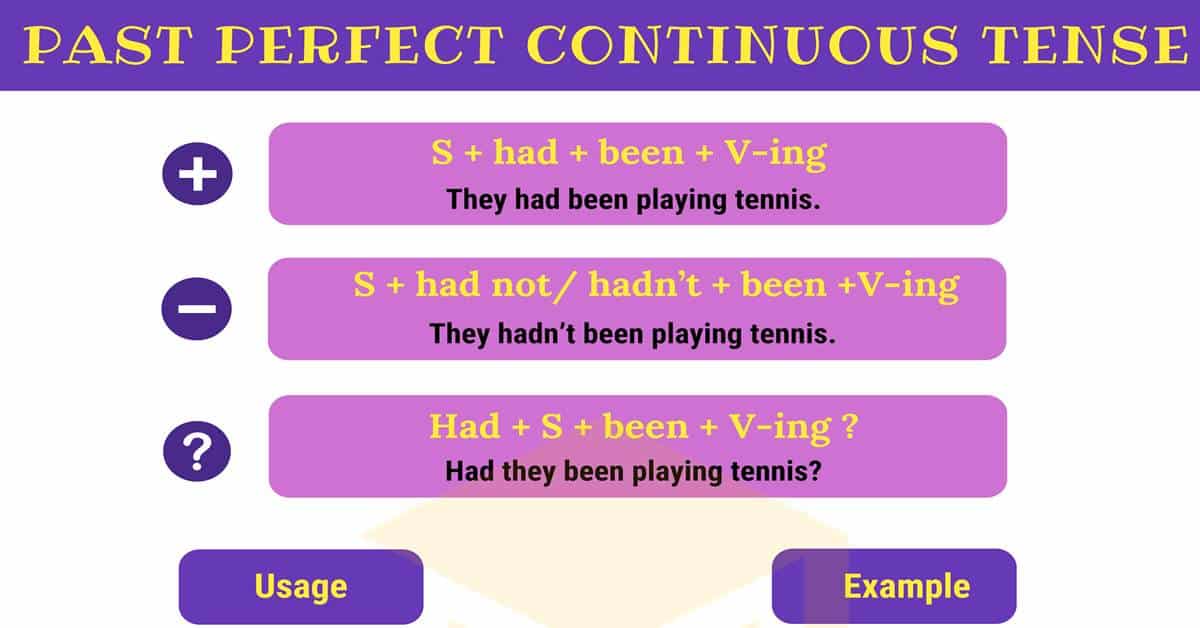Introduction
The word Tense is a term in English grammar and refers to a form of the verb that indicates time. Time is a universal, non-linguistic concept with three divisions - Past, Present and Future; by tense, we understand the correspondence between the form of the verb and our concept of time. When making a statement it is essential to indicate whether a situation exists now, existed in the past or is likely to exist in the future.
The past perfect continuous tense in English grammar is the past tense of the perfect continuous tense. It is formed using the auxiliary verb have and the past participle of the main verb. The past perfect continuous tense is used in the same way as the present perfect continuous tense to emphasize duration. The difference between the past perfect continuous tense and the present perfect continuous tense is that the former emphasizes that activity started in the past and continued up until another action in the past whereas the latter emphasizes the duration between two points in the past.
Past Perfect Continuous Tense - Rules and Examples
✅ Rule 1
When the action began before the time of speaking in the past and continued up to that time, or stopped just before it, we can often use either past perfect or past perfect continuous; as,
- It was now six and he was tired because he had worked since dawn.
- It was now six and he was tired because he had been working since dawn.
✅ Rule 2
To denote an action that had been going on for some time before another action took place in the past.
- I had been solving problems in mathematics for hours when you come.
✅ Rule 3
To express a repeated action in the past perfect as a continuous action; as,
- He had been trying to phone her.
✅ Affirmative Sentences
Pattern:
➤ Subject + had been + verb (ing) + object + since/for.
- We had been studying in this college since 1990.
- They had been teaching there for ten years.
✅ Negative Sentences
Pattern:
➤ Subject + had + not been + verb (ing) + object + since/for.
- He had not been working in this company for ten years.
- The washerman had not been washing clothes since 10 o’clock.
✅ Interrogative Sentences
Pattern:
➤ Had + subject + been + verb (ing) + object + since/ for?
➤ Q.W. + had + subject + been + verb (ing) + object + since/for?
- Had they been working in that company for twenty years?
- Where had he been teaching them for four months?
You May Also Like 👇
Loading...

